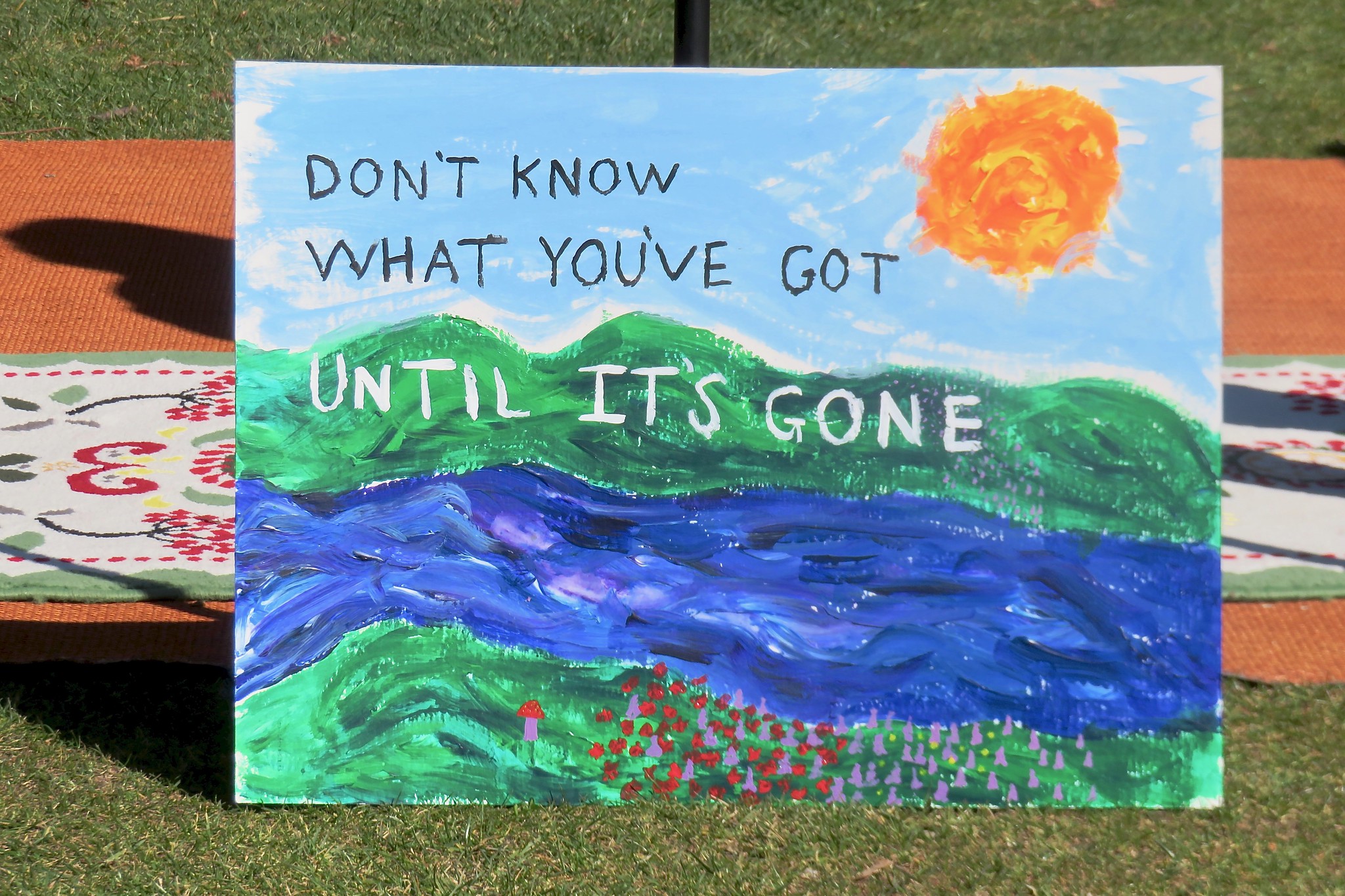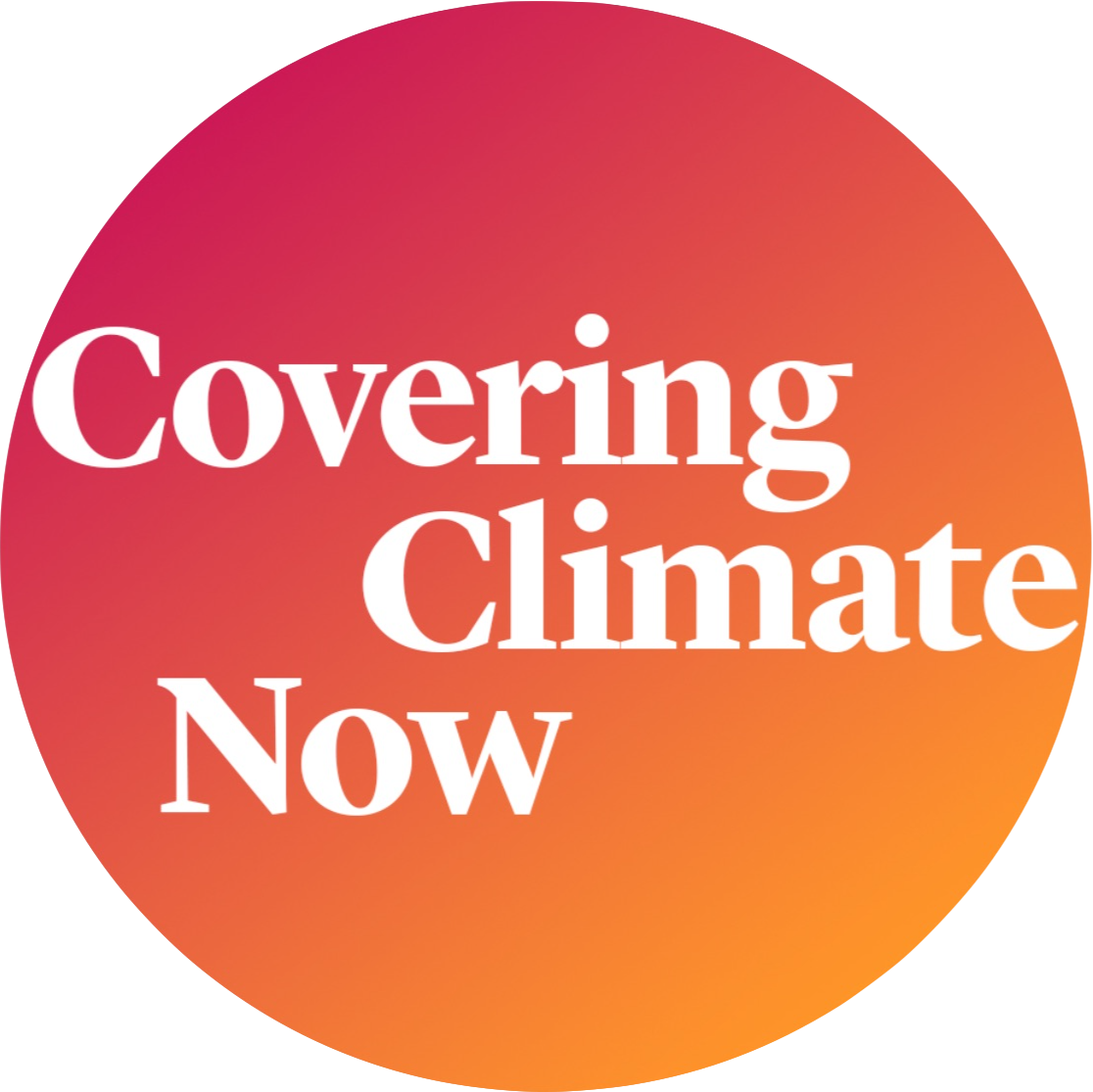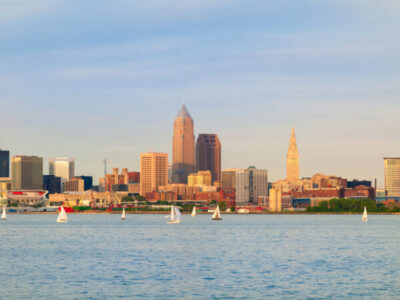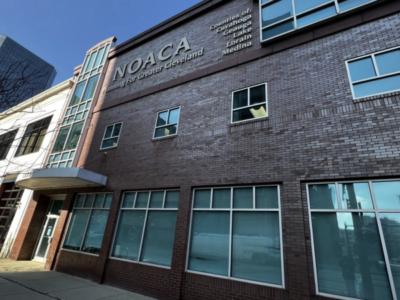
By Mary Retta

This story originally appeared in Teen Vogue and is republished here as part of Covering Climate Now, a global journalism collaboration strengthening coverage of the climate story.
Watching An Inconvenient Truth in your middle-school science class. Hearing Greta Thunberg’s calls to join weekly school strikes. Driving away from smoldering wildfires engulfing dry California hillsides.
These are some of the moments that made young people realize the climate crisis will define their lives — and the future of human life on Earth. We’ve heard the facts so many times that it’s easy to become numb to them. The world is steadily growing warmer, certain parts of the world are facing extreme droughts or floods, many wildlife populations are shrinking — and things are only projected to grow worse, with carbon emissions rising and countries contributing to mass deforestation. Despite these emergencies, many U.S. politicians, including Arkansas Senator Tom Cotton and Florida Senator Marco Rubio, deny the reality of climate change. And the Western world, particularly the United States, is currently the biggest contributor to the climate crisis. Though the climate crisis is affecting everyone on Earth, it’s effects have been particularly felt by those living in the global south, lower-income people, and younger people, whose futures are being shaped by how we handle the crisis.
These overarching facts are important to reiterate. But it’s also critical to understand what climate change feels like on an everyday level — how it affects our mental and physical health. It’s a problem so enormous and disorienting that it’s often easier to just shove it into the darker corners of our minds, where we don’t want to look. Living under the spectre of climate change can make it feel surreal to try to plan an education, a career, a family, or any concrete aspect of your future.
That’s why younger generations have risen up, calling on global leaders to treat our rapidly changing climate like the emergency it is. Teen Vogue heard from more than 80 young people about how they imagine the climate crisis might define their future. A selection of their responses is below.
Editor’s note: These responses have been condensed and lightly edited for clarity.
Ariana Matondo, Tampa, Florida, 19, college student
In eighth grade, we learned about the sea levels rising in Florida, and that Florida could go partially underwater because of this. When the teacher told me this, fear plagued my body and I immediately started making plans to move out of Florida when I became a college student. Seven years later, however, and I’m still here. I’ve definitely become more sustainable in my own way since then. I started going second-hand shopping more often and started a community garden with my friends a few years ago. Some things that give me hope are going to beach clean-ups and the many sustainability options that people use in downtown Tampa Bay, such as solar panels and other energy management systems.
Delina, Houston, Texas, 21, college student
I live in Texas, so the recent winter-storm outage has scared people around me and made us want to take matters into our own hands. I am a coordinator for mutual aid efforts in the Austin area, and seeing people share funds, housing those in need, and sharing food and water has brought me so much hope when seeing how we can help those who are victims of climate disaster. Through social media and listening to community leaders, I am educating myself on how to live a low-waste life and having discussions with those around me to take small steps in living sustainably.
Ace, Brooklyn, New York, 28, astrologer
I go through moments of realizing that this will define my future, but it’s hard to understand that fully. When I was 21, I remember having a moment [in which] I learned that climate change is irreversible. COVID has been an exercise in learning that crisis happens slowly. In the past few years, NYC has been reclassified into a subtropical climate. That has been scary. I feel anger at those in power. I feel fear for my family members in the developing world.
Mariana, El Paso, Texas 17, high-school student
Unlike some of my friends, I don’t feel a lot of anger towards older generations. I think people conjure up very stereotypical ideas of old people that they can be mad about. But my parents didn’t do this. My grandparents didn’t do this. They are poor laborers. Certain members of the older generation were more responsible than others, and we can be mad at some of them. I just want them to understand how very serious this is and how important it is to act now. The longer we wait, the harder it will be. So even though they won’t be around, say, 40 years from now, they still can and should join with us in trying to fix this problem, for their kids and grandkids.
Kiran Misra, Cedar Rapids, Iowa, 24, Government Partnerships Officer at the World Food Programme
My hometown has experienced two ‘once-in-a-lifetime’ natural disasters in my lifetime — first, a flood in 2008 and next, a ‘derecho’ inland hurricane in 2020. Seeing homes underwater, roofs torn off, and more, really hit home that the effects of climate change aren’t just happening in coastal areas or deserts — it can happen in Iowa too. Of course, the impacts of these disasters are most felt by those who are non-white or low income: when a city floods, those living on higher elevations can often emerge relatively unscathed, and during the derecho, those with stronger roofs who could afford to get them replaced or repaired more often experienced less damage to their homes.
Catch more news on Great Lakes Now:
America’s gas-fueled vehicles imperil Biden’s climate goals
Air, Wind, Solar: In the Great Lakes region, energy stands out in President Biden’s efforts
API key not valid. Please pass a valid API key.Featured image: Hundreds of young activists joined an inspiring Youth Climate Strike in Santa Rosa, Calif., to demand action on climate change, March 15, 2019. (Photo Credit: Fabrice Florin via Flickr, CC BY-SA 2.0)




